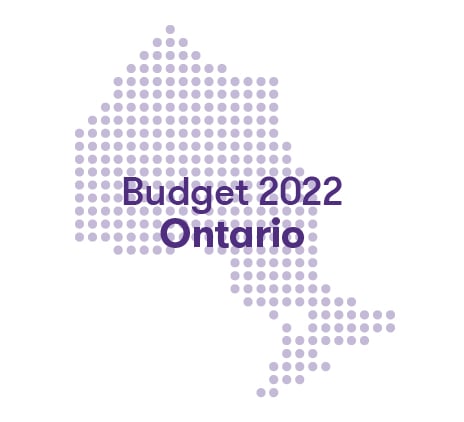-
Financial reporting and accounting advisory services
You trust your external auditor to deliver not only a high-quality, independent audit of your financial statements but to provide a range of support, including assessing material risks, evaluating internal controls and raising awareness around new and amended accounting standards.
-
Accounting Standards for Private Enterprises
Get the clear financial picture you need with the accounting standards team at Doane Grant Thornton LLP. Our experts have extensive experience with private enterprises of all sizes in all industries, an in-depth knowledge of today’s accounting standards, and are directly involved in the standard-setting process.
-
International Financial Reporting Standards
Whether you are already using IFRS or considering a transition to this global framework, Doane Grant Thornton LLP’s accounting standards team is here to help.
-
Accounting Standards for Not-for-Profit Organizations
From small, community organizations to large, national charities, you can count on Doane Grant Thornton LLP’s accounting standards team for in-depth knowledge and trusted advice.
-
Public Sector Accounting Standards
Working for a public-sector organization comes with a unique set of requirements for accounting and financial reporting. Doane Grant Thornton LLP’s accounting standards team has the practical, public-sector experience and in-depth knowledge you need.
-
Tax planning and compliance
Whether you are a private or public organization, your goal is to manage the critical aspects of tax compliance, and achieve the most effective results. At Doane Grant Thornton, we focus on delivering relevant advice, and providing an integrated planning approach to help you fulfill compliance obligations.
-
Research and development and government incentives
Are you developing innovative processes or products, undertaking experimentation or solving technological problems? If so, you may qualify to claim SR&ED tax credits. This Canadian federal government initiative is designed to encourage and support innovation in Canada. Our R&D professionals are a highly-trained, diverse team of practitioners that are engineers, scientists and specialized accountants.
-
Indirect tax
Keeping track of changes and developments in GST/HST, Quebec sales tax and other provincial sales taxes across Canada, can be a full-time job. The consequences for failing to adequately manage your organization’s sales tax obligations can be significant - from assessments, to forgone recoveries and cash flow implications, to customer or reputational risk.
-
US corporate tax
The United States has a very complex and regulated tax environment, that may undergo significant changes. Cross-border tax issues could become even more challenging for Canadian businesses looking for growth and prosperity in the biggest economy in the world.
-
Cross-border personal tax
In an increasingly flexible world, moving across the border may be more viable for Canadians and Americans; however, relocating may also have complex tax implications.
-
International tax
While there is great opportunity for businesses looking to expand globally, organizations are under increasing tax scrutiny. Regardless of your company’s size and level of international involvement—whether you’re working abroad, investing, buying and selling, borrowing or manufacturing—doing business beyond Canada’s borders comes with its fair share of tax risks.
-
Succession & estate planning
Like many private business owners today, you’ve spent your career building and running your business successfully. Now you’re faced with deciding on a successor—a successor who may or may not want your direct involvement and share your vision.
-
Tax Reporting & Advisory
The financial and tax reporting obligations of public markets and global tax authorities take significant resources and investment to manage. This requires calculating global tax provision estimates under US GAAP, IFRS, and other frameworks, and reconciling this reporting with tax compliance obligations.
-
Transfer pricing
Recognized as a leader in the transfer pricing community, our award-winning team can help you expand your business beyond borders with confidence.

-
Transactions
Our transactions group takes a client-centric, integrated approach, focused on helping you make and implement the best financial strategies. We offer meaningful, actionable and holistic advice to allow you to create value, manage risks and seize opportunities. It’s what we do best: help great organizations like yours grow and thrive.
-
Restructuring
We bring a wide range of services to both individuals and businesses – including shareholders, executives, directors, lenders, creditors and other advisors who are dealing with a corporation experiencing financial challenges.
-
Forensics
Market-driven expertise in investigation, dispute resolution and digital forensics
-
Cybersecurity
Viruses. Phishing. Malware infections. Malpractice by employees. Espionage. Data ransom and theft. Fraud. Cybercrime is now a leading risk to all businesses.
-
Consulting
Running a business is challenging and you need advice you can rely on at anytime you need it. Our team dives deep into your issues, looking holistically at your organization to understand your people, processes, and systems needs at the root of your pain points. The intersection of these three things is critical to develop the solutions you need today.
-
Creditor updates
Updates for creditors, limited partners, investors and shareholders.

-
Governance, risk and compliance
Effective, risk management—including governance and regulatory compliance—can lead to tangible, long-term business improvements. And be a source of significant competitive advantage.
-
Internal audit
Organizations thrive when they are constantly innovating, improving or creating new services and products and envisioning new markets and growth opportunities.
-
Certification – SOX
The corporate governance landscape is challenging at the best of times for public companies and their subsidiaries in Canada, the United States and around the world.
-
Third party assurance
Naturally, clients and stakeholders want reassurance that there are appropriate controls and safeguards over the data and processes being used to service their business. It’s critical.
-
 Assurance Important changes coming to AgriInvest in 2025AgriInvest is a business risk management program that helps agricultural producers manage small income declines and improve market income.
Assurance Important changes coming to AgriInvest in 2025AgriInvest is a business risk management program that helps agricultural producers manage small income declines and improve market income. -
 Tax alert Agricultural Clean Technology ProgramThe Agricultural Clean Technology Program will provide financial assistance to farmers and agri-businesses to help them reduce greenhouse gas (GHG) emissions.
Tax alert Agricultural Clean Technology ProgramThe Agricultural Clean Technology Program will provide financial assistance to farmers and agri-businesses to help them reduce greenhouse gas (GHG) emissions. -
 Tax alert ACT Program – Research and Innovation Stream explainedThe ACT Research and Innovation Stream provides financial support to organizations engaged in pre-market innovation.
Tax alert ACT Program – Research and Innovation Stream explainedThe ACT Research and Innovation Stream provides financial support to organizations engaged in pre-market innovation. -
 Tax alert ACT Program – Adoption Stream explainedThe ACT Adoption Stream provides non-repayable funding to help farmers and agri-business with the purchase and installation of clean technologies.
Tax alert ACT Program – Adoption Stream explainedThe ACT Adoption Stream provides non-repayable funding to help farmers and agri-business with the purchase and installation of clean technologies.
-
Builders And Developers
Every real estate project starts with a vision. We help builders and developers solidify that vision, transform it into reality, and create value.
-
Rental Property Owners And Occupiers
In today’s economic climate, it’s more important than ever to have a strong advisory partner on your side.
-
Real Estate Service Providers
Your company plays a key role in the success of landlords, investors and owners, but who is doing the same for you?

-
Mining
There’s no business quite like mining. It’s volatile, risky and complex – but the potential pay-off is huge. You’re not afraid of a challenge: the key is finding the right balance between risk and reward. Whether you’re a junior prospector, a senior producer, or somewhere in between, we’ll work with you to explore, discover and extract value at every stage of the mining process.
-
Oil & gas
The oil and gas industry is facing many complex challenges, beyond the price of oil. These include environmental issues, access to markets, growing competition from alternative energy sources and international markets, and a rapidly changing regulatory landscape, to name but a few.

On November 3, 2022, the Honourable Chrystia Freeland, Deputy Prime Minister and Minister of Finance, tabled the federal government’s Fall Economic Statement (FES 2022). Minister Freeland’s update comes at a critical time as rising inflation, interest rates, and the cost of living are roiling Canadians’ finances. FES 2022 announced targeted support measures meant to help at-risk Canadians and businesses, and to launch what Minister Freeland called "a real, robust industrial policy" to position Canada for future economic growth. The government also introduced several tax measures to respond to the U.S. Inflation Reduction Act— including the share buyback tax that encourages corporations to reinvest their profits into the workforce and our economy, and investment incentives for clean technology and hydrogen production.
Fiscal update
FES 2022 includes two scenarios for numerous economic indicators: a baseline scenario and a downside scenario. The baseline scenario shows the government’s official projections and the downside scenario factors in the impacts of lasting inflation.
The following table outlines key economic indicators in both scenarios:
The projected deficit for 2022-23 is reduced to $36.4 billion in the baseline scenario or $49.1 billion in the downside scenario, in comparison to a deficit of $52.8 million projected for the same period in Budget 2022 [ 1400 kb ]. The government expects to see a budget surplus by 2027 based on their official projections.
Business tax measures
FES 2022 introduces two tax credits to attract investments in clean technologies, aligning with its previous announcements in Budget 2022.
Investment tax credit for clean technologies
The government proposes a refundable tax credit for investments in certain clean technologies including:
- electricity generation systems, including solar photovoltaic, small modular nuclear reactors, and certain concentrated solar, wind, and eligible water systems
- stationary electricity storage systems that don’t run on fossil fuels, such as batteries, flywheels, supercapacitors and systems that store magnetic energy, compressed air, pumped hydro, gravity energy, and thermal energy
- low-carbon heat equipment, like active solar heating and air-source, and ground-source heat pumps
- industrial zero-emission vehicles and related charging or refueling equipment, including hydrogen and electric heavy-duty equipment used in mining or construction
Claimants that meet specified labour conditions (including wage levels and apprenticeship training) may be eligible for a 30 per cent credit, whereas claimants who don’t meet these requirements could be eligible for a 20 per cent credit. The Department of Finance (Finance) plans to hold consultations and make further announcements about additional eligible technologies and provide further details on labour condition requirements in Budget 2023.
If enacted, this tax credit will be available for eligible investments made on or after the day Budget 2023 is tabled and will be gradually phased out starting with property that becomes available for use in 2032, until it’s fully phased out at the start of 2035.
Investment tax credit for clean hydrogen
Investment in the production of clean hydrogen could lead to a tax credit of at least 40 per cent. The government announced the launch of a consultation on how to best implement its previously announced refundable tax credit for investments in clean hydrogen production. In particular, Finance is seeking input on the carbon intensity-based system most appropriate for Canada and the support level required for different production pathways. As with the clean technologies tax credit, this will be tied to satisfying certain wage and apprenticeship labour conditions. Where these conditions are not met, the maximum tax credit will be reduced by 10 per cent. Details on the maximum tax credit are not yet available.
If enacted, the tax credit for clean hydrogen will be available for eligible investments made on or after the day Budget 2023 is tabled and will be phased out after 2030.
Personal tax measures
Extension of the Residential Property Flipping Rule to Assignment Sales
FES 2022 confirms the government’s intention to proceed with implementing the proposed new residential property flipping rule introduced in Budget 2022 [ 1400 kb ], and announces the extension of the rule to profits arising from assignment sales.
Under the residential property flipping rule, residential properties held by individuals for less than 12 months are considered “flipped property” and any gain on the sale is deemed to be business income and fully taxable with no principal residence exemption available to reduce the tax. An exclusion may be available where the property is disposed of due to a qualifying life event which generally includes: death, an addition to the household, separation, threats to personal safety, disability or illness, loss of employment, an eligible relocation (e.g., a work relocation where the new house is 40 km closer to the new location), insolvency, or involuntary disposition.
By extending this rule to assignment sales, Finance’s intention is that individuals who hold the rights to a pre-construction residential property and sell within 12 months will be subject to the same tax treatment as someone who had owned the property for the same period. The 12-month holding period would reset once ownership of the property transfers to the taxpayer.
If enacted, the residential property flipping rule will apply to residential properties sold on or after January 1, 2023. In situations where this proposed new rule doesn’t apply due to a life event or the property being owned for more than 12 months, it remains a question of fact whether an individual’s gain on the sale of a residential property is taxed as business income.
Other tax measures
Tax on share buybacks by public corporations
The government intends to introduce a 2 per cent tax at the corporate level on share buybacks by public corporations (I.e., where the company purchases its own stock back from its shareholders). This is similar to the 1 per cent levy on stock buybacks recently introduced in the U.S. If enacted, this new tax will apply to the net value of all share buybacks by public corporations in Canada and will go into effect on January 1, 2024. More details will be provided in Budget 2023.
Additional measures
FES 2022 includes the following additional measures:
- Automatic advance of Canada Workers Benefit (CWB) payments: Currently, eligible low-income individuals claiming the refundable CWB on their tax returns have the option to apply to receive up to half of their anticipated CWB entitlement in up to four advance payments, but this option is often overlooked. Effective January 1, 2023, FES 2022 proposes to automatically provide qualifying individuals quarterly advance payments starting in July 2023 for the 2023 taxation year.
- Eliminating interest on federal student and apprentice loans: In response to the pandemic, the federal government temporarily waived interest charges on student loans for two years, which will end on March 31, 2023. To provide ongoing support to new graduates, FES 2022 proposes making all Canada Student Loans and Canada Apprentice Loans permanently interest-free, effective April 1, 2023. This new measure is expected to include existing and new loans.
- Government service improvements: FES 2022 announced new investments of $400M in 2022-23 and 2023-24 for Canada Revenue Agency call centre operations. Similarly, FES announced $137M for Canada Border Service Agency frontline operations to help relieve border-crossing pressures.
Previously announced tax measures
Finance reaffirms its intention to implement certain previously proposed measures, subject to modification resulting from consultations with stakeholders.
The list is extensive, but some key measures include:
- Substantive Canadian Controlled Private Corporation (CCPC) rules
- Expansion of the eligibility for the Small Business Deduction for CCPCs
- New trust reporting requirements
- Mandatory disclosure rules
- Excessive interest and financing expense limitation rules (known as the “EIFEL” rules)
- Housing affordability measures such as the new Tax-Free First Home Savings Account, First-Time Home Buyer’s Tax Credit and Multigenerational Home Renovation Tax Credit
- General Anti-Avoidance Rules (GAAR) reform
- The Digital Services Tax Act mentioned in Budget 2022 [ 1400 kb ], which could be imposed as of January 1, 2024, but only if the international OECD/G20 Pillar One framework is not in force by then. FES 2022 notes that international agreement on implementing Pillar One is progressing and may occur within the first half of 2023 and confirms Canada’s renewed commitment to working with the OECD/G20 on the Pillar Two initiative regarding a global minimum tax.
- Replacing the current Alternative Minimum Tax rules with a new minimum tax targeting high net worth individuals who claim a large amount of deductions and tax credits
Furthermore, Budget 2022 [ 1400 kb ] announced the government's intention to launch a review focused on the challenges posed by the digitalization of money and cryptocurrencies. FES 2022 confirms that consultations on the tax framework for digital currencies are being launched on November 3, 2022.
Have questions? Let’s talk. Contact your local advisor or reach out to us here.
Disclaimer
The information contained herein is general in nature and is based on proposals that are subject to change. It is not, and should not be construed as, accounting, legal, or tax advice or an opinion provided by Doane Grant Thornton LLP to the reader. This material may not be applicable to, or suitable for, specific circumstances or needs and may require consideration of other factors not described herein.
Get the latest information in your inbox.
Subscribe to receive relevant and timely information and event invitations.




